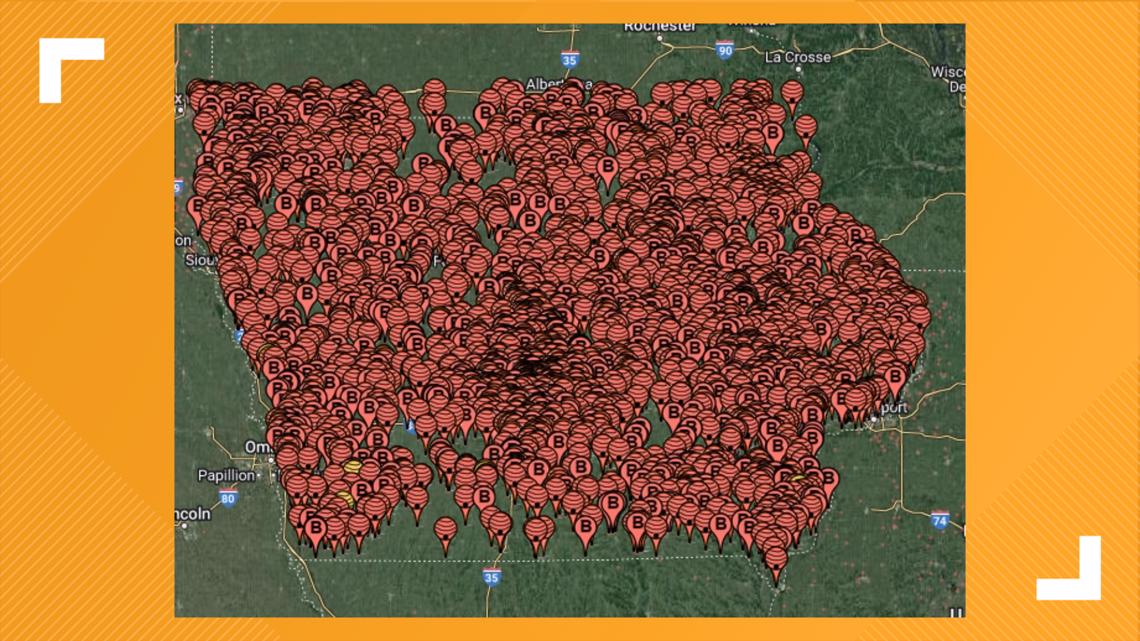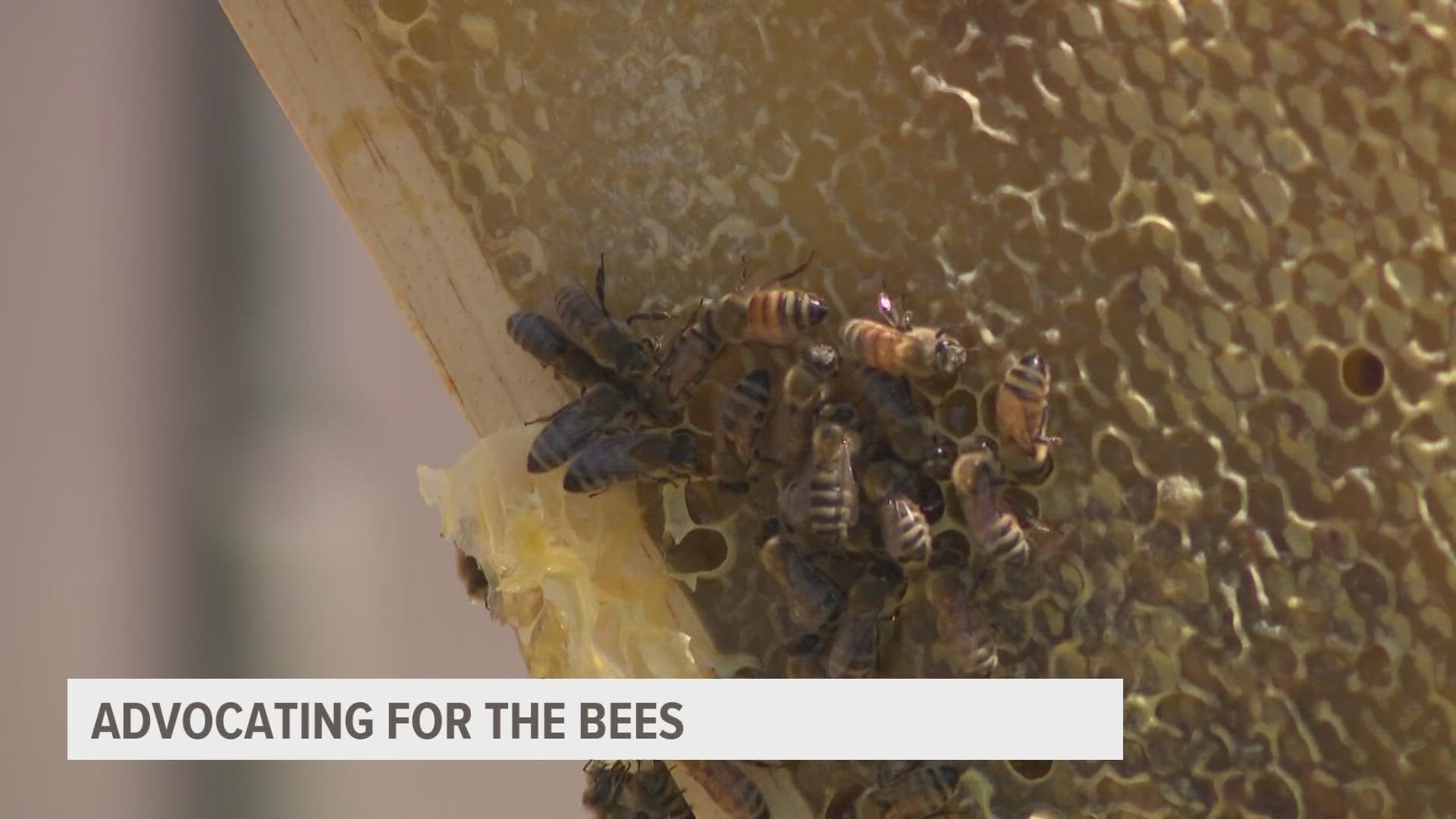DES MOINES, Iowa — Saving Iowa's sensitive crops and insects from pesticides is the goal of Fieldwatch. They are a national mapping tool alerting pesticide applicators of where to steer clear.
But in order for the tool to work, farmers and beekeepers need to register their crops and hives, making the app's accuracy driven by usage.
While Bob Walters, CEO of FieldWatch, says it's hard to know the exact number of crops and insects saved, the best evidence of its success lies with vegetable producers.
He says early on they were losing a lot of crops due to pesticide applicators, now the crop loss is almost insignificant with the amount of producers and applicators using the tool.
"It doesn't matter if they're spraying from a tractor or from a plane, it doesn't matter if they're spraying along the roadsides or spraying for mosquitoes or spraying agricultural land. They use the tool and so they're aware," Walters said.
Within FieldWatch there are a couple different registries, including "DriftWatch" and "BeeCheck."
Walters says in Iowa, beekeepers must register their hives to minimize the loss of crops and bees from the accidental contamination or drift of chemical spray.
That BeeCheck map is pictured below:


You can see the state is pretty much covered in red. About 38,000 colonies in total. And one local beekeeper wants to see even more red on here.
But to really help the bees, he also wants to give wings to the so-called Iowa "bee rule" that uses this information to tell sprayers where and when they can use pesticides.
"Beekeeping is one of the most educational tools on learning about nature than I've ever experienced," said Jamie Beyer, who has a passion for bees.
An apiarist for 8 years, he's also the president of the Central Iowa Beekeepers Association.
And he's the first to admit — he likes to talk about bees a lot.
"Somebody finds out I'm a beekeeper, I'm surrounded by people with questions. They want to know about it. They want to know about what the problems the bees, they want to know just what I do," Beyer said.
Beyer says he takes any chance he can get to raise awareness about bees because it's working.
Iowa's honeybee population is stable and maybe even going up, according to Beyer.
"And that is because of the increased interest in keeping honey bees. There's a lot of people that are into bees," he said. "Now, they might only have five or ten hives or two hives. Those are hobby beekeepers, we're seeing a huge increase in those beekeepers."
Beyer likes the idea of a BeeCheck, even with its shortcomings.
"Unfortunately, it's not adhered to by 100% of the beekeepers out there, so some people are kind of private about where they keep bees. They're worried that somebody's gonna come in and steal their bees. So if they register their hives, everybody knows where their hives are then," Beyer said.
He would like to see all beekeepers register and the spraying rules apply to not just commercial sprayers, but private ones as well.
"A private farmer in his own application does not have to abide by that rule. But like, where I keep my bees, the farmers that keep my bees, they still abide by it for the benefit of me," he said.
For Beyer, it's an instance where it pays to be neighborly and have conversations sharing strategies that will, hopefully, not only lead to more red dots on a map, but more bees pollinating and making honey across Iowa for generations to come.
He says pollinating alone is reason enough to protect the bees, as they are crucial to crops like almonds and apples.
As for Iowa, the state is ranked 16th in honey production nationwide, according to the U.S. Department of Agriculture. In 2021, Iowa beekeepers produced two million pounds of honey, valued at just over $5 million.

